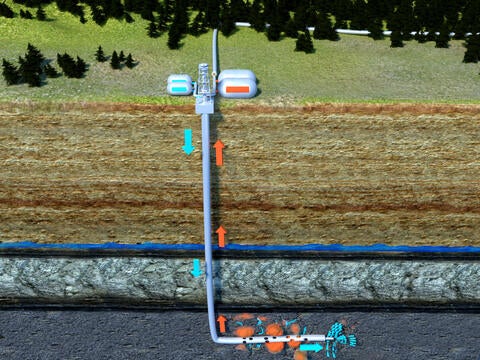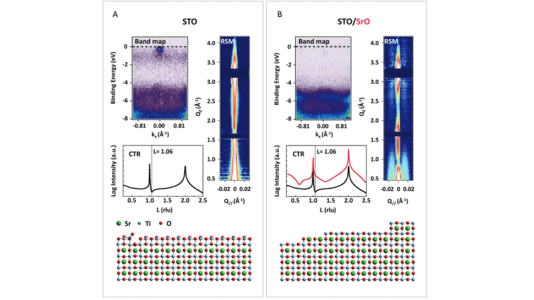石油採掘が揺れの引き金に Oil extraction practice triggers tremors
2023-08-10 カリフォルニア大学リバーサイド校(UCR)

Fracking is a technique for fracturing rocks by a pressurized liquid. The goal is to create cracks in rock formations through which natural gas or petroleum can be transported to the surface. (selvanegra/iStock/Getty)
◆これにより、年間数十億枚の太陽光パネルに匹敵する炭素の削減が期待されます。地震学者の間で議論されていた微動の原因も、液体CO2を使用したフラッキングが引き起こす可能性が高いと示されました。
◆この研究は、地下での液体の移動や断層の変形を理解し、環境に与える影響をモニタリングする重要性を強調しています。
<関連情報>
- https://news.ucr.edu/articles/2023/08/10/study-ties-fracking-another-type-shaking
- https://www.science.org/doi/full/10.1126/science.adh1331
流体噴射中の震動信号は断層すべりによって発生する Tremor signals during fluid injection are generated by fault slip
Shankho Niyogi,Abhijit Ghosh,Abhash Kumar, and Richard W. Hammack
Science Published:3 Aug 2023
DOI:https://doi.org/10.1126/science.adh1331
Editor’s summary
Volcanoes and glaciers have seismic tremors that are caused by fluid movement or other frictional processes. Niyogi et al. found that tremors with very similar characteristics also occurred during a supercritical carbon dioxide injection program in Kansas. After carefully subtracting background noise, the authors found tremors located near fault structures in the interior that likely were due to frictional slip. This finding may provide a way to model and track stress distribution in the subsurface during the injection of carbon dioxide or other fluids. —Brent Grocholski
Abstract
Seismic tremor signals, also known as long-period, long-duration signals, have been reported in several locations where fluid injection for enhanced oil and gas exploration is taking place. However, the origin of these signals remains poorly constrained. We studied seismic tremor signals in Wellington Field, Kansas, using a seismic array during a carbon dioxide injection program. We show that these signals are generated below the surface during the time of carbon dioxide injection. They have a distinct spectral signature, similar to those observed in glacial and volcanic environments. The tremor sources are located near the injection site and aligned with preexisting faults. Modeling results imply that such tremors are generated by frictional slip on fault. These observations may reveal an important deformation mode, which is useful for studying associated stress, seismicity, and triggering, as well as for tracking fault activities during injection operations of all fluids, including supercritical carbon dioxide.



